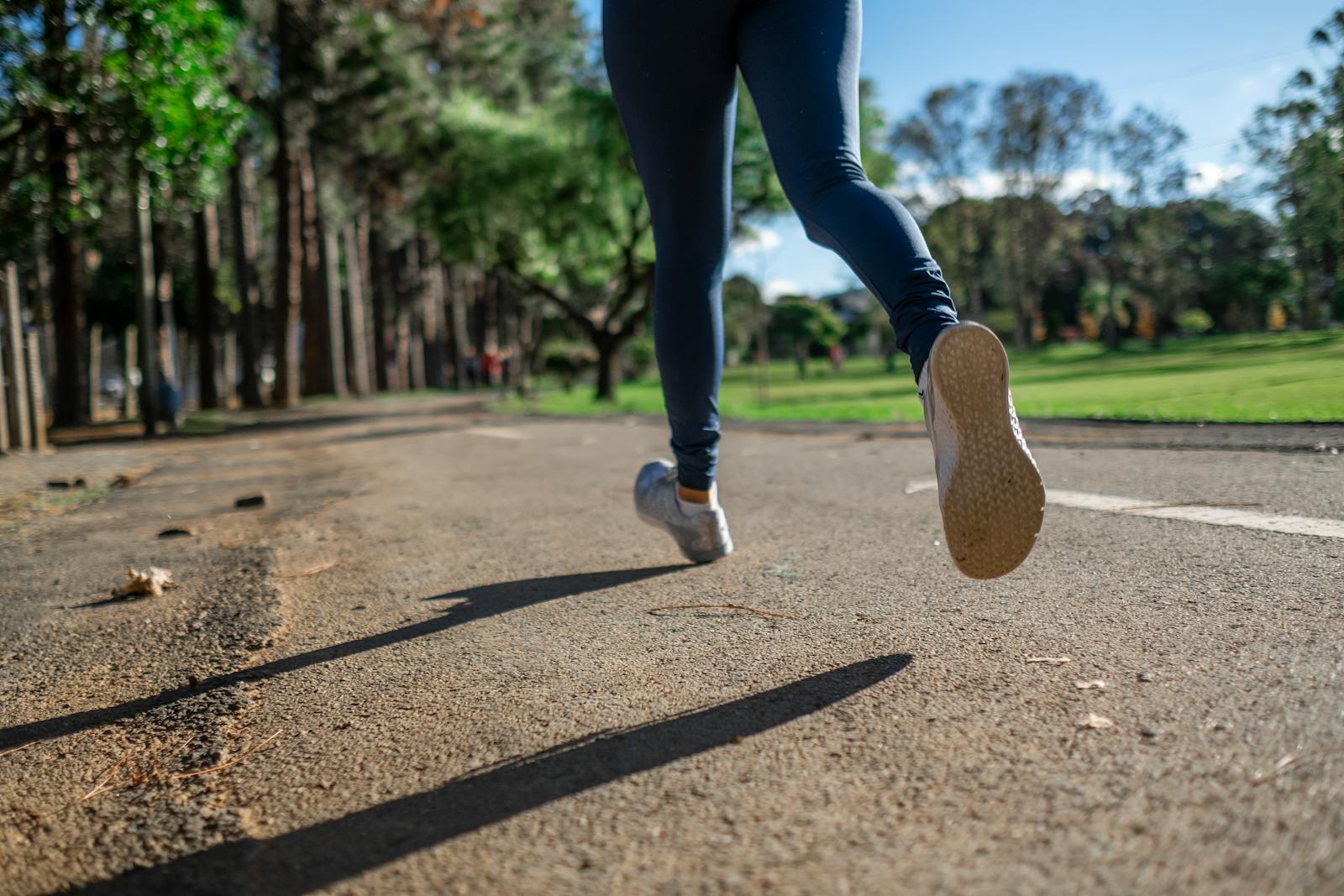A comprehensive analysis of runner data has revealed a startling finding: runners who sleep poorly face nearly double the injury risk compared to those who sleep well. This research from recent studies demonstrates that sleep is not merely a recovery tool—it’s a critical component of injury prevention. For runners and athletes of all levels, this finding underscores why prioritizing quality sleep deserves as much attention as training plans and nutrition.
The Sleep-Injury Connection: Physiological Mechanisms
Quality sleep serves multiple critical functions for injury prevention in runners. During sleep, particularly during deep sleep stages, human growth hormone is released, facilitating muscle tissue repair and adaptation. The tendons, ligaments, and muscle fibers damaged during training are rebuilt during sleep, becoming stronger and more resilient. Inadequate sleep impairs this repair process, leaving tissues weakened and vulnerable.
Additionally, sleep regulates pain perception and inflammation. During sleep deprivation, inflammatory markers increase throughout the body, and pain perception becomes heightened. This combination makes injury more likely to occur and actual injury more likely to feel disabling. Moreover, sleep deprivation impairs proprioception—the body’s sense of its position in space—which decreases movement efficiency and control, increasing injury risk.
Sleep also serves crucial cognitive functions affecting training safety. Sleep-deprived runners show decreased focus, slower reaction times, and poorer decision-making. This translates to reduced ability to notice warning signs of overtraining, less awareness of terrain hazards, and poorer form execution—all risk factors for injury.
The Data: How Much Does Sleep Matter?
The research showing doubled injury risk in poor sleepers compared to good sleepers is substantial enough to suggest causation rather than mere correlation. Runners sleeping less than 6 hours nightly showed dramatically higher injury incidence than those averaging 7-9 hours. The effect was dose-dependent: each additional hour of sleep below recommended levels increased injury risk.
Importantly, the relationship wasn’t simply about duration. Sleep quality mattered as much or more than sleep quantity. Runners with fragmented, interrupted sleep—even if they spent 8 hours in bed—showed elevated injury risk compared to those sleeping fewer hours uninterrupted. This suggests that consistency and continuity matter as much as total sleep hours.
Types of Running Injuries Linked to Sleep Deprivation
The research identified specific injuries more common in sleep-deprived runners, including stress fractures, shin splints, and overuse injuries affecting knees and hips. These injury types share a common feature: they develop gradually from accumulated microdamage that, with adequate sleep, would be repaired. Poor sleep allows this microdamage to accumulate unchecked until it manifests as injury.
Conversely, acute traumatic injuries were less strongly associated with sleep deprivation, suggesting sleep matters less for injury prevention when accidents occur. However, the body’s ability to recover from traumatic injury is likely also compromised by poor sleep, so sleep affects both injury risk and recovery trajectory.
The Female Runner Consideration
Research suggests female runners may be particularly vulnerable to sleep deprivation’s injury-promoting effects. Female hormones influence sleep architecture and quality, and training stress interacts with hormonal cycles affecting both performance and injury risk. Female runners managing both training stress and hormonal fluctuations experience more sleep disruption on average, potentially explaining higher injury rates in some populations.
Circadian Rhythm and Training Timing
Sleep quality connects to circadian rhythm disruption, which is increasingly recognized as affecting injury risk. Training at circadian-misaligned times (for example, very early morning for someone with a naturally late chronotype) may compound injury risk beyond sleep deprivation alone. Runners whose training schedule aligns with their natural circadian preference may experience lower injury rates through better sleep quality and training performance combined.
Practical Sleep Optimization for Runners
Understanding the importance of sleep for injury prevention should motivate runners to prioritize sleep as seriously as they prioritize their training. Practical strategies include maintaining consistent sleep-wake schedules (even on weekends), creating a dark, cool, quiet sleep environment, avoiding screens 1-2 hours before bed due to blue light disruption of melatonin, and limiting caffeine particularly in the afternoon.
Regular exercise promotes sleep quality, but timing matters—intense training close to bedtime can be stimulating and disruptive. Most sleep researchers recommend finishing intense training at least 3 hours before bed. Additionally, managing stress through meditation, yoga, or other relaxation techniques improves sleep quality substantially.
Recovery Weeks and Sleep Patterns
Research suggests recovery weeks (reduced training volume) combined with increased sleep yields synergistic injury prevention benefits. During recovery weeks, muscles aren’t stressed as intensely, requiring less repair. Simultaneously, increased sleep provides more time for adaptation processes. Runners who strategically incorporate recovery weeks with prioritized sleep show substantially lower injury rates than those maintaining consistent high training volume without strategic recovery.
The Overtraining Syndrome Connection
Sleep deprivation can precipitate or exacerbate overtraining syndrome—a state of accumulated training stress exceeding recovery capacity, leading to performance decline and injury. The classic signs of overtraining include persistent fatigue, elevated resting heart rate, increased injury susceptibility, mood disturbance, and sleep disruption. Poor sleep both contributes to overtraining development and results from it, creating a vicious cycle.
Breaking this cycle requires simultaneously reducing training stress, prioritizing sleep, managing stress, and ensuring adequate nutrition. Runners experiencing overtraining symptoms should view sleep as part of medical treatment rather than optional recovery enhancement.
Sleep Tracking and Individual Optimization
Modern wearable devices track sleep metrics including duration, deep sleep percentage, and sleep fragmentation. While these metrics aren’t perfectly accurate, they provide useful feedback for identifying sleep patterns and testing interventions. Runners can experiment with sleep optimization strategies while monitoring whether changes yield improved sleep quality and reduced injury rates.
Individual optimization acknowledges that people have different sleep needs. While general recommendations suggest 7-9 hours nightly, some individuals require 9-10 hours for optimal training recovery, particularly during heavy training phases. Identifying your individual sleep requirement through experimentation and self-observation is worthwhile investment for injury prevention.
Professional Support and Sleep Disorders
For runners experiencing persistent sleep issues despite implementing good sleep hygiene, professional support from a sleep medicine specialist may be warranted. Sleep disorders like obstructive sleep apnea, restless leg syndrome, or circadian rhythm disorders are common, often undiagnosed, and substantially impair athletic performance and injury risk.
Treating underlying sleep disorders through appropriate medical intervention can normalize sleep architecture and dramatically improve injury outcomes. Runners should advocate for sleep assessment if they consistently sleep poorly despite good sleep habits.
The Bottom Line: Sleep as Injury Prevention
The research demonstrating doubled injury risk in sleep-deprived runners provides compelling evidence that sleep deserves recognition as a critical component of training. Elite athletes have long understood this, often prioritizing sleep as rigorously as they prioritize training. More recreational runners should adopt this perspective.
Injury prevention requires addressing multiple factors: appropriate training progression, strength training, adequate nutrition, and injury prevention exercises all matter. But the recent research makes clear that without quality sleep, these other interventions can only partially compensate. For runners committed to staying healthy and reaching their potential, making sleep a non-negotiable priority represents one of the highest-impact decisions possible.




